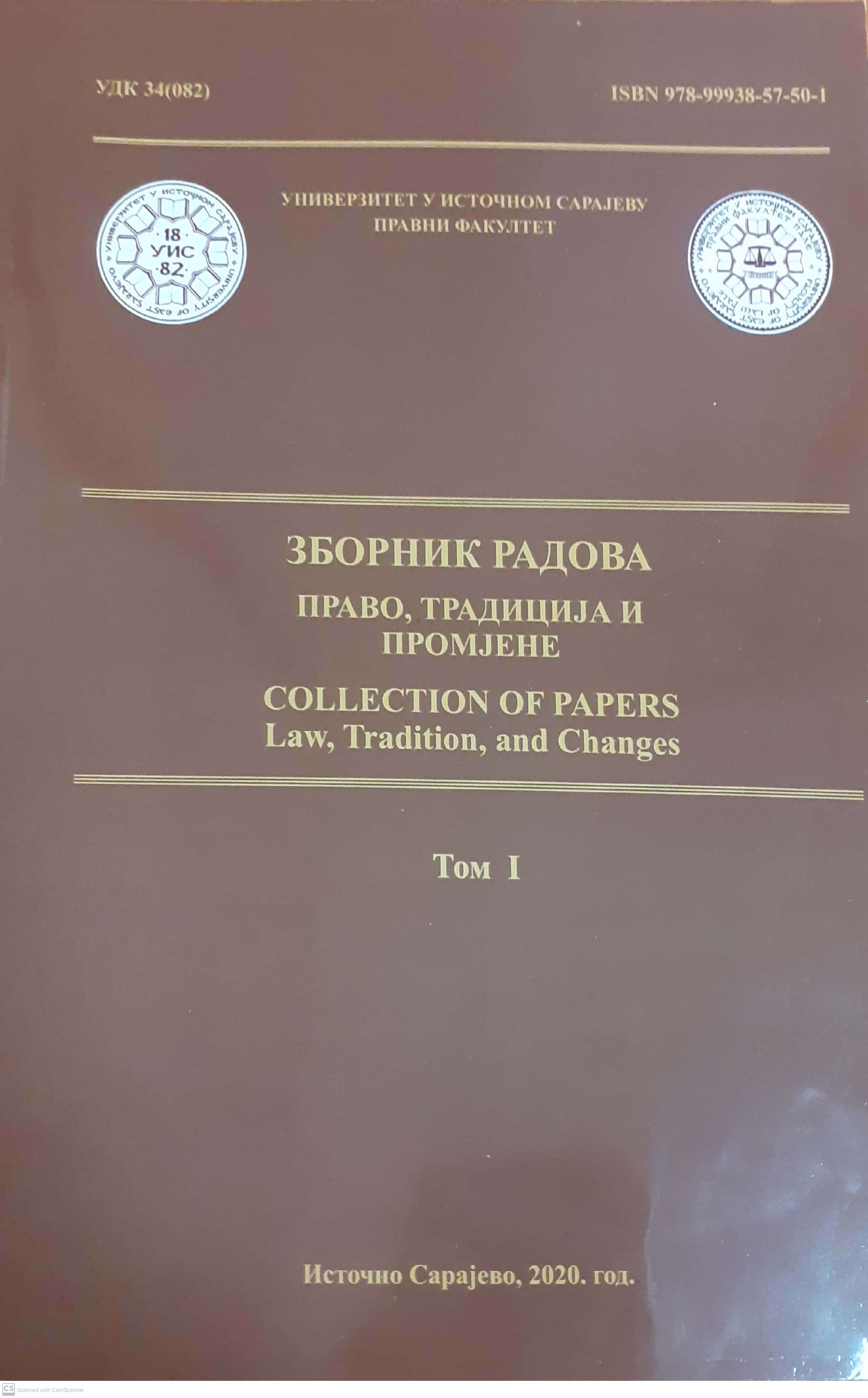Подјела надлежности између институција Босне и Херцеговине и ентитета, (не)оправданост преноса и могућност њиховог поврата
Division of Competencies Between Institutions of Bosnia and Herzegovina and Entities, Unjustified Transfer and Possibility of Their Restoration
Author(s): Mile Dmičić
Subject(s): Constitutional Law, Governance, Government/Political systems, Politics and law
Published by: Правни факултет Универзитета у Источном Сарајеву
Keywords: Complex state;Division of competencies;Transfer and effects of transfered competencies and the posibillity of their return;Entity and joint institutions;Constitutional changes;
Summary/Abstract: The paper analyzes basic characteristics of the constitutional model of division of competencies between the institutions of Bosnia and Herzegovina (hereinafter: BiH) and the entities, previously transferred competencies, justification and effects of their transfer and the possibility of their restoration. This exceptionally important constitutional matter is also seen in the context of comparative constitutionality, according to which, in complex states, the competencies are shared between subjects of state character, some of which represent a country as a whole and others constituent parts of the community, but both having a certain degree of statehood and independence. According to the constitutional theory and empiricism, the division of competencies is mostly carried out directly by the constitution, with the provision that an authoritative institution must be determined for the objective and meritorious resolution of possible disputes over jurisdiction. Due to the character of state and social organization and rule, the division of competencies cannot be resolved once and for all, and therefore, as a rule, this phenomenon is a current and constantly changing constitutional category. The term “division” or “distribution” of competencies is regularly used when it comes to relations within complex states, which are more characterized and adequate by the notions of “trust” or “delegation” of competencies. As a multinational, multi religious and multicultural community under international protectorate, a divided society, one with unfinished state and social organization, this model of division of competencies, in which there is an institute of "additional competencies", powers of the High Representative that have no basis in an international peace treaty and unitarization with the advocacy of the principle of "one man - one vote", all this becomes a direct reflection on the stability, security, territorial and political integrity and especially on the identity and subjectivity of its state-building parts.
- Page Range: 86-116
- Page Count: 31
- Publication Year: 2019
- Language: Serbian
- Content File-PDF

